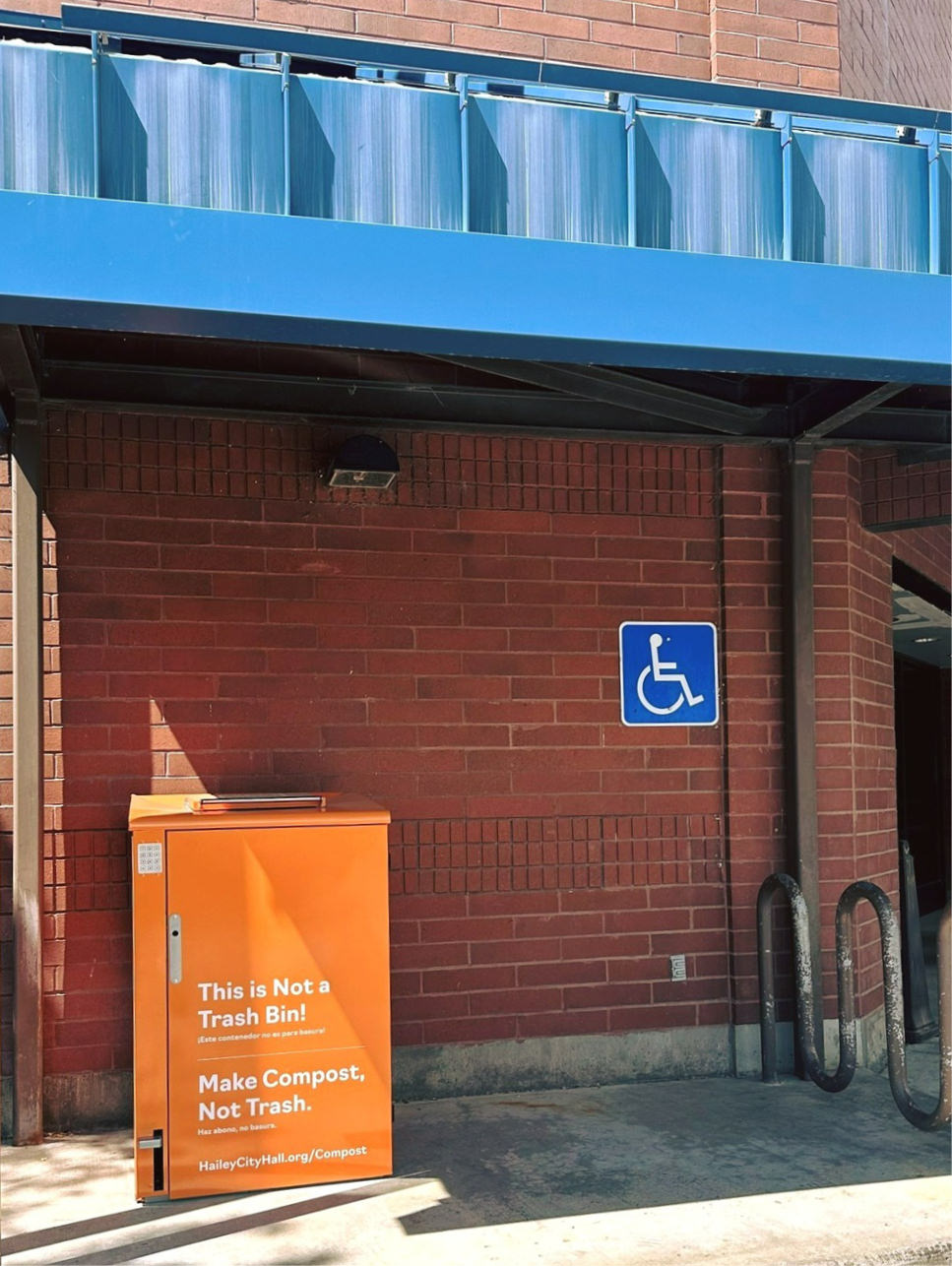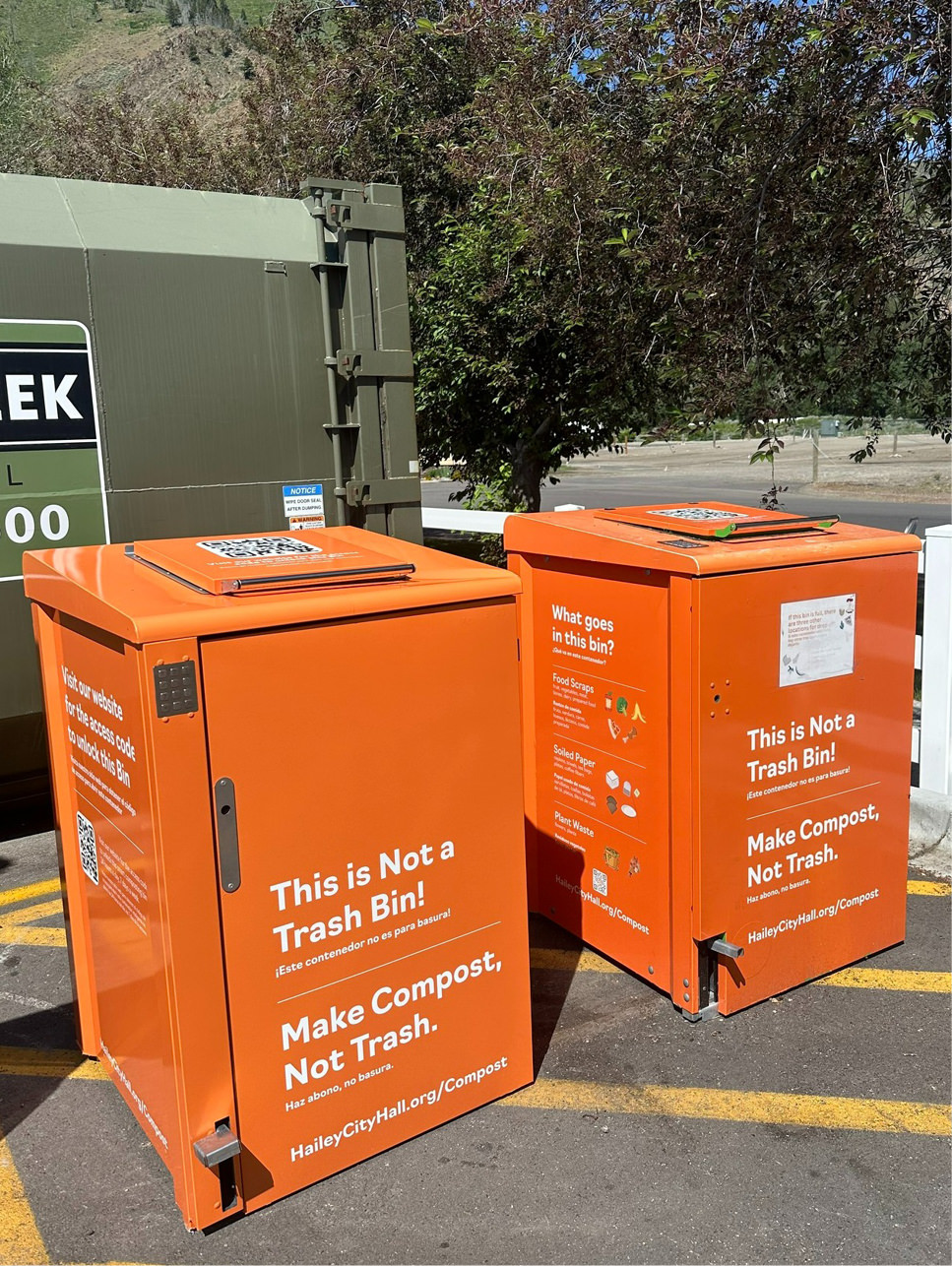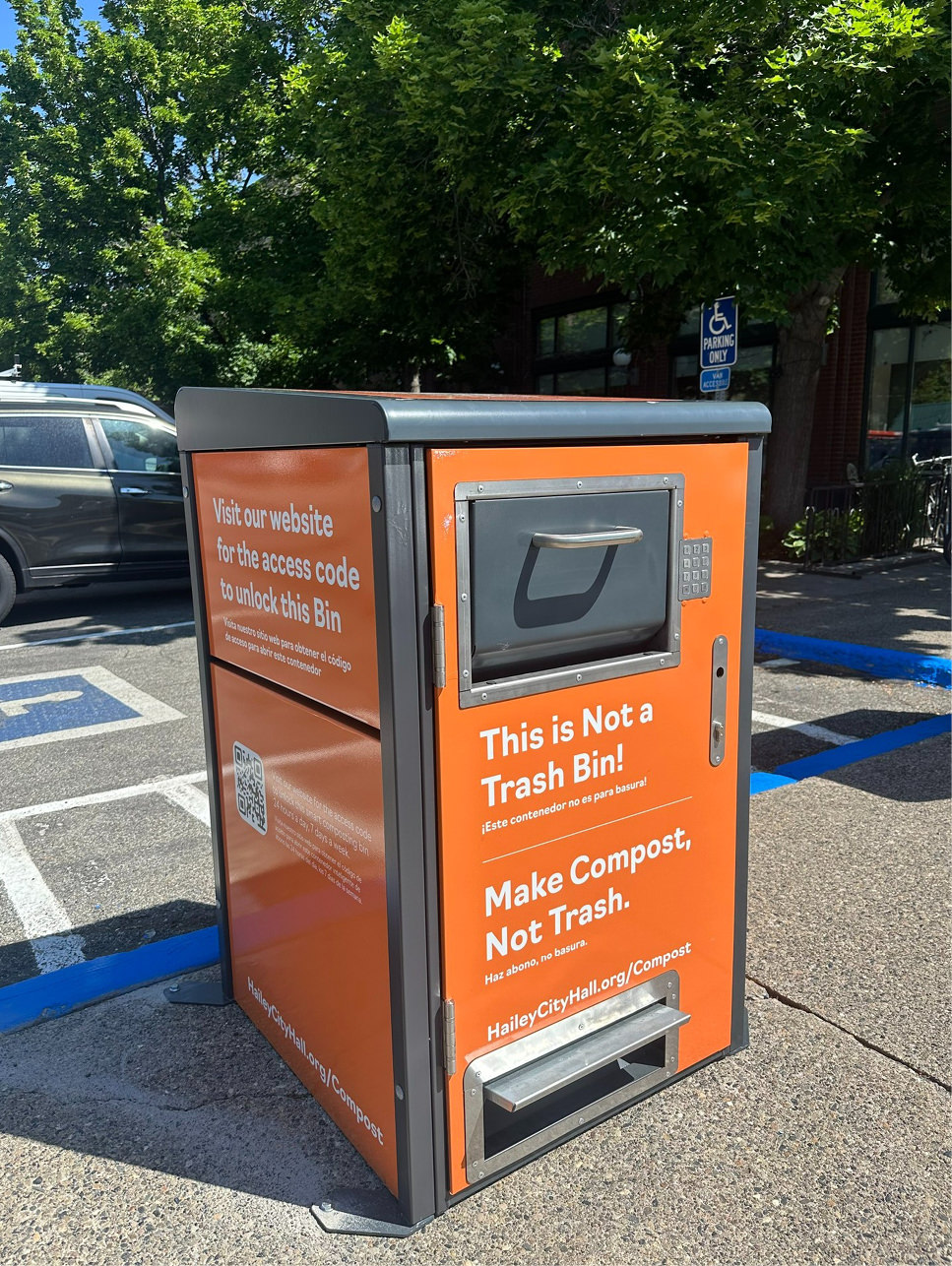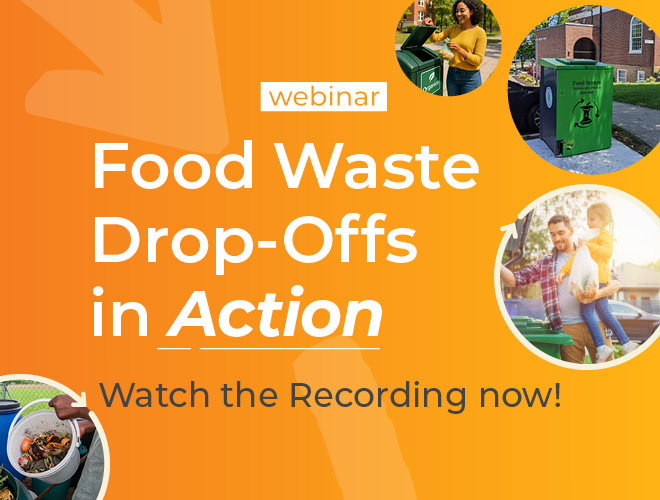
Small City, Big Impact: How Hailey, Idaho built a Community-Driven Food Waste Drop-Off Program
Tucked in the mountains of south-central Idaho, the City of Hailey is home to just under 10,000 residents and a year-round influx of tourists drawn to the nearby Sun Valley Resort.
With long winters, remote geography and a landfill located 100 miles away, Hailey faced growing environmental and logistical pressure to reduce the volume of food waste being hauled out of the Wood River Valley.
Responding to both resident interest and the rising cost of long-distance disposal, Hailey set out to develop a 24/7 community drop-off program for residential food scraps, one that could divert organics locally and offer an easy, inclusive alternative to curbside collection.
metroSTOR were delighted to be joined by Emily Williams from the City of Hailey at our recent Food Waste Drop-Offs in Action webinar and hear her insights. Here, Emily, as well as experts from other programs across the country, discussed the roll out of their successful food waste drop-off schemes and answered questions from colleagues looking to implement something similar in their local areas. You can watch the full webinar here.
Curbside organics pickup was considered early on, but it proved too expensive for residents and unpopular with households already composting at home. A new solution was needed: one that would be cost-effective, widely accessible and easy to maintain through Idaho’s snowy five-month winters.
With grant funding from the Idaho Department of Environmental Quality, Hailey launched its community food scrap drop-off program in late 2023. The city partnered with metroSTOR to install secure, user-friendly FX-series enclosures in high-traffic locations including grocery stores, City Hall, a park and a community campus.
Each unit contains a 65-gallon cart and uses either BLE-enabled metroKEY app access or a simple keypad entry code. Bins are serviced twice weekly by a local hauler and all food scraps are sent to Winn’s Compost, a commercial composter located in the valley.
Initially, access methods were tested: three app-only bins and one keypad. The keypad model quickly proved more popular, so new installations now include dual access (app and PIN) to maximize usability. QR codes on each unit link directly to current instructions and access details on the city website.



“For a city of our size, we were amazed at how much food waste we collected right away. The keypad-access bins were by far the most popular, people just want something simple and easy to use.
We used a single bilingual postcard with a picture of the bins and clear instructions, and that was enough. The QR code on each bin links straight to our website and the feedback has been overwhelmingly positive.
We have very little contamination. I check the bins twice a week and if something is off, I look up who accessed the bin and send a quick reminder email. The app makes it really easy to manage.
The program has expanded faster than we expected. We even reallocated our outreach budget to buy more bins. metroSTOR was great to work with, especially when we needed an ADA-accessible version. That unit has made a big difference.
For us, this has been a big success, affordable, local and community-driven.”
— Emily Williams, Grants and Sustainability Coordinator, City of Hailey
With strong resident uptake and an efficient, low-maintenance collection model, Hailey is now focused on maintaining momentum and adapting to meet evolving community needs.
The city’s straightforward, user-first approach, backed by data, flexibility and local processing, is already serving as a model for other rural towns looking to reduce landfill use and build local resilience through composting.

City of Hailey, represented by Emily Williams, featured in our webinar on how organics drop-off programs are working in practice across the US. Emily shared how Hailey rapidly expanded its food waste program by focusing on accessible locations, clear communication and infrastructure that residents could use confidently. Watch the full webinar to hear directly from operators delivering these programs.